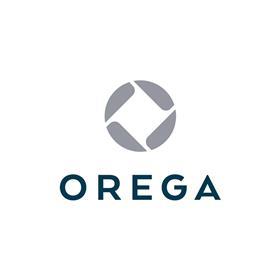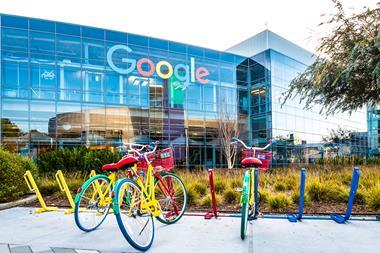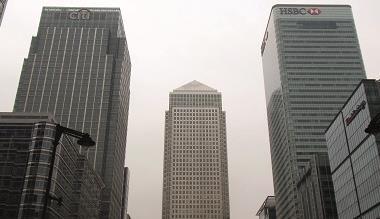What is the future of the office? It is a question that all of us in commercial real estate have been asking since the outbreak of Covid, and while we can all make an educated guess, only data can give us a true indication of what the workplace might look like post-pandemic.

That is why we at Orega recently commissioned Survation to carry out an independent survey of 2,000 office workers and 500 business leaders. As the UK’s number-one provider of flexible workspace under management agreements, we wanted to know what companies are planning for their real estate strategy and what it is that customers want in the years ahead.
What we found was encouraging: just 26% of businesses plan to move to a smaller office, with 56% predicting they will retain the office they have. Only 17% of office workers will work from home every day, and just 18% of business leaders are happy for them to do so.
What’s more, 78% of businesses and 81% of employees want to keep working in an office, and when the office lease ends, a total of 62% either want to retain the office space as it is or look to increase. When asked why they wanted to keep their office, 67% of businesses said the office was important for career development and training, and 80% said it was vital for the company to collaborate and communicate.
So, the message is clear: the UK market is not giving up on the office, but now flexibility is more important than ever.
What does this mean for us and our sector?
It is not just about flexibility but quality as well. One of the key themes from an operator’s perspective going forward is the focus on amenities
First, it means opportunities for growth. With uncertainty over both the speed of the economic recovery and the government’s back-to-work guidance, we are seeing huge interest from businesses that need flexibility. Many firms do not know what they will need in the long term, and having the freedom to upsize or downsize is crucial. It is this opportunity that has led us to open three new sites since last March, the latest of which came just this month.
Second, it means we all must be prepared for a bigger shift towards hybrid working. Much of our customer base at Orega had already accepted the hybrid model before the pandemic struck, but our survey has shown a far deeper trend towards this way of working.
If 2020 was about WFH or working from home, 2021 is seeing the emergence of the TWTs – people choosing to be in the office on Tuesday, Wednesday and Thursday.
Young people in particular are keen to return. If you are in your early 20s, the thought of staying at home working from your parents’ kitchen table is not appealing. You want to be with co-workers your own age. Looking at some of the effects of working from home during lockdown, our survey found that 31% said their mental health had declined, while one in four (24%) saw their personal finances worsen.
Focus on amenities
It is not just about flexibility but quality as well. One of the key themes from an operator’s perspective going forward is the focus on amenities.
For those who were asked in our survey what things they want to see most in their office, 58% said quiet spaces to escape interruptions and get work done, 53% said more private space, 52% said better provision of fresh air and 37% said self-serve barista-style coffee. Employees expect more and more from the offices in which they work. As a result, at Orega we offer a concierge-style service with professionally trained staff and generous communal spaces and more desk space per person than most of our competitors. We have even installed barista-style automatic coffee machines where you can order your latte by Siri or app.

On top of all these shifting trends, we are also seeing more and more interest in the management agreement model that we pioneered when I founded Orega two decades ago.
Management agreements are a partnership, as opposed to a one-off real estate deal like leaseholds. This means that landlords and investors have a greater say over how their assets are used and the return is more stable and profitable over the long term.
Moving away from a lease to a management agreement also means investors and landlords lose their higher fixed costs in more challenging times and in turn can make their cashflow more profitable. It allows operators to better manage cashflow during difficult economic conditions, as observed over the last 12 months with the onset of the pandemic.
With these agreements meaning that operators do not have to concern themselves with some of the harder real estate cost aspects, they can put more focus on the hospitality and concierge-style service that customers expect.
We have been in this business for 20 years. It’s all we do. In that time, our experience and expertise in this area has allowed us to deliver above-market returns to landlords. So it is no great surprise that many of our competitors are interested in management agreement-style contracts with landlords. For those of us in the industry with strong balance sheets and profitability, the future in this area is very promising indeed.
With our track record, we are one of the primary operators of choice, so we have spent a lot of time making sure our business is prepared for significant growth in the years to come.
There is no doubt that the last 18 months have been testing. I have now taken this business through three financial crises, and each time there has been a downturn, corporate companies have reacted by taking a little bit less office space while pushing more into a flexible working model.
This time around, we have already seen a lot less space being disposed of by the large corporations and an increase in significant requirements for medium-sized businesses, which are planning to come out of their lease as soon as they can to go into flex. This is driven by a need to have flexibility while they work out what the next few years will be like.
It is for this reason that as we emerge from this latest lockdown, I am feeling optimistic. While the Covid downturn has thrown the future of the office into uncertainty, it has also reinforced and accelerated the trends that we at Orega have been focusing on – be it hospitality, flexibility or amenities.
We have grown into a business that now has more than 500,000 sq ft under management in 20 locations across the UK, including London, Manchester, Liverpool, Birmingham, Bristol, Slough, Aberdeen, Glasgow and Leeds, looking after more than 10,000 clients.
As new opportunities start to appear once again, we believe we are perfectly placed for the boom in flex working that is set to come.

About Orega
• The UK’s No.1 operator of management agreements
• Established in 2001
• 500,000 sq ft of premium flex space
• 20 locations across the UK
• 15,000+ customers
Contact Orega at: hello@orega.com | 0800 840 5509 | www.orega.com
Flexible workspace is set for a post-pandemic boom
- 1
 Currently reading
Currently readingFlexible workspace is set for a post-pandemic boom
- 2






























No comments yet